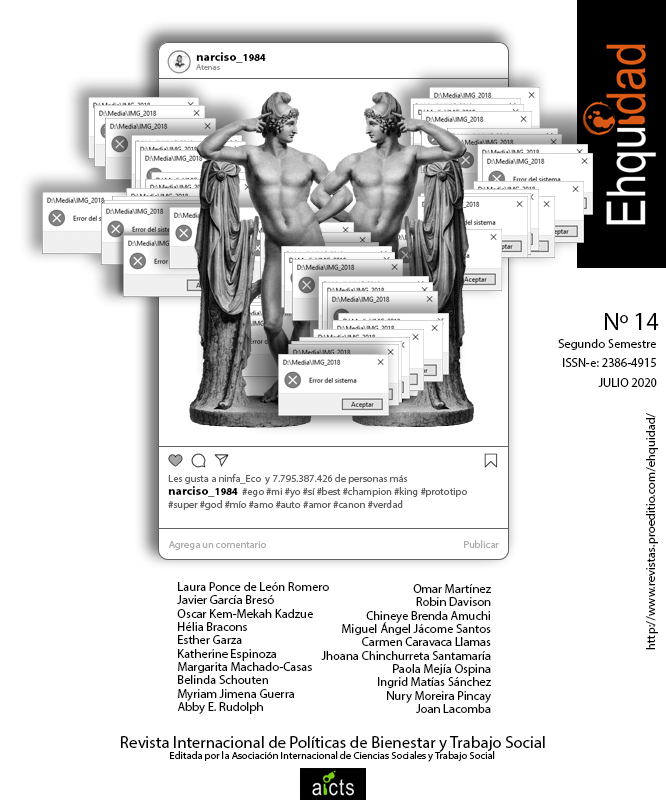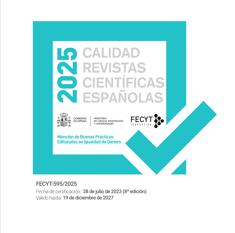Informed consent for HIV phylogenetic research: A case study of urban individuals living with HIV approached for enrollment in an HIV study
DOI:
https://doi.org/10.15257/ehquidad.2020.0015Keywords:
HIV epidemiology, Stigma, Informed consent, Disclosure, PhylogenyAbstract
Introduction: Phylogenetic analyses can provide insights on HIV ransmisión dynamics. Country and state-level differences in HIV criminalization and disclosure laws and advances in next generation sequencing could impact perceived study risks. Methods: We present study opt-out rates and the reasons provided during enrollment for a study conducted in Boston (6/2017-8/2018). Results: Of 90 patients approached to participate, 45 did not consent to participate. Reasons for not participating included unwillingness to discuss their HIV status, privacy and confidentiality concerns, disinterest, and lack of time. Conlusions: Given low participation rates and concerns related to HIV disclosure, privacy, and confidentiality, these questions remain (1) should informed consent be required for all phylogenetic analyses, including de-identified and surveillance data? (2) what additional steps can researchers take to protect the privacy of individuals, particularly in contexts where HIV is criminalized or there have been civil/criminal cases investigating HIV ransmisión? And (3) what role can community members play to minimize the potential risks, particularly for those most marginalized? These questions require input from both researchers and community members living with HIV/AIDS.
Downloads
References
Abecasis, A. B., Pingarilho, M., & Vandamme, A.-M. (2018). Phylogenetic analysis as a forensic tool in HIV transmission investigations. Aids, 32(5), 543-554.
Audelin, A. M., Cowan, S. A., Obel, N., Nielsen, C., Jørgensen, L. B., & Gerstoft, J. (2013). Phylogenetics of the Danish HIV epidemic: the role of very late presenters in sustaining the epidemic. JAIDS Journal of Acquired Immune Deficiency Syndromes, 62(1), 102-108.
Chan, P. A., Hogan, J. W., Huang, A., DeLong, A., Salemi, M., Mayer, K. H., & Kantor, R. (2015). Phylogenetic Investigation of a Statewide HIV-1 Epidemic Reveals Ongoing and Active Transmission Networks Among Men Who Have Sex With Men. Jaids-Journal of Acquired Immune Deficiency Syndromes, 70(4), 428-435. Retrieved from ://WOS:000364316300014
Chan, P. A., Kazi, S., Rana, A., Blazar, I., Dejong, C. C., Mayer, K. H., . . . Kantor, R. (2013). Short communication: new HIV infections at Southern New England academic institutions: implications for prevention. AIDS Res Hum Retroviruses, 29(1), 25-29. doi:10.1089/AID.2012.0130
Chan, P. A., Tashima, K., Cartwright, C. P., Gillani, F. S., Mintz, O., Zeller, K., & Kantor, R. (2011). Short communication: Transmitted drug resistance and molecular epidemiology in antiretroviral naive HIV type 1-infected patients in Rhode Island. AIDS Res Hum Retroviruses, 27(3), 275-281. doi:10.1089/aid.2010.0198
Coltart, C. E. M., Hoppe, A., Parker, M., Dawson, L., Amon, J. J., Simwinga, M., . . . Ethics in, H. I. V. P. W. G. (2018). Ethical considerations in global HIV phylogenetic research. Lancet HIV, 5(11), e656-e666. doi:10.1016/S2352-3018(18)30134-6
Corbie-Smith, G., Wynn, M., Richmond, A., Rennie, S., Green, M., Hoover, S. M., . . . Nisbeth, K. S. (2018). Stakeholder-driven, consensus development methods to design an ethical framework and guidelines for engaged research. PLoS ONE, 13(6), 1-12. doi:10.1371/journal.pone.0199451
Dennis, A. M., Herbeck, J. T., Brown, A. L., Kellam, P., de Oliveira, T., Pillay, D., . . . Cohen, M. S. (2014). Phylogenetic studies of transmission dynamics in generalized HIV epidemics: An essential tool where the burden is greatest? JAIDS Journal of Acquired Immune Deficiency Syndromes, 67(2), 181-195.
Dennis, A. M., Hué, S., Hurt, C. B., Napravnik, S., Sebastian, J., Pillay, D., & Eron, J. J. (2012). Phylogenetic insights into regional HIV transmission. AIDS (London, England), 26(14), 1813.
Fisher, M., Pao, D., Brown, A. E., Sudarshi, D., Gill, O. N., Cane, P., . . . Sabin, C. (2010). Determinants of HIV-1 transmission in men who have sex with men: a combined clinical, epidemiological and phylogenetic approach. Aids, 24(11), 1739-1747.
Forbes, A. (1996). Mandatory name-based reporting: impact and alternatives. AIDS Policy Law, Bonus Report, 1-4. Retrieved from https://www.ncbi.nlm.nih.gov/pubmed/11654491
Frentz, D., Wensing, A. M., Albert, J., Paraskevis, D., Abecasis, A. B., Hamouda, O., . . . Schmit, J.-C. (2013). Limited cross-border infections in patients newly diagnosed with HIV in Europe. Retrovirology, 10(1), 36.
Grabowski, M. K., Lessler, J., Redd, A. D., Kagaayi, J., Laeyendecker, O., Ndyanabo, A., . . . Mueller, A. C. (2014). The role of viral introductions in sustaining community-based HIV epidemics in rural Uganda: evidence from spatial clustering, phylogenetics, and egocentric transmission models. PLoS medicine, 11(3), e1001610.
Grabowski, M. K., & Redd, A. D. (2014). Molecular tools for studying HIV transmission in sexual networks. Current Opinion in HIV and AIDS, 9(2), 126-133.
HIV test; informed consent; disclosure of results or identity of subject of test, Chapter 111 C.F.R.
HIV test; informed consent; disclosure of results or identity of subject of test, § 70F.
Hué, S., Clewley, J. P., Cane, P. A., & Pillay, D. (2004). HIV-1 pol gene variation is sufficient for reconstruction of transmissions in the era of antiretroviral therapy. Aids, 18(5), 719-728.
Hué, S., Pillay, D., Clewley, J. P., & Pybus, O. G. (2005). Genetic analysis reveals the complex structure of HIV-1 transmission within defined risk groups. Proceedings of the National Academy of Sciences of the United States of America, 102(12), 4425-4429.
Lazzarini, Z., Galletly, C. L., Mykhalovskiy, E., Harsono, D., O’keefe, E., Singer, M., & Levine, R. J. J. A. j. o. p. h. (2013). Criminalization of HIV transmission and exposure: research and policy agenda. 103(8), 1350-1353.
Mehta, S. R., Wertheim, J. O., Brouwer, K. C., Wagner, K. D., Chaillon, A., Strathdee, S., . . . Murrell, B. (2015). HIV Transmission Networks in the San Diego–Tijuana Border Region. EBioMedicine, 2(10), 1456-1463.
Mutenherwa, F., Wassenaar, D. R., & de Oliveira, T. J. D. w. b. (2018). Ethical issues associated with HIV phylogenetics in HIV transmission dynamics research: A review of the literature using the Emanuel Framework.
Wertheim, J. O., Brown, A. J. L., Hepler, N. L., Mehta, S. R., Richman, D. D., Smith, D. M., & Pond, S. L. K. (2014). The global transmission network of HIV-1. Journal of Infectious Diseases, 209(2), 304-313.
Wolf, L. E., Dame, L. A., Patel, M. J., Williams, B. A., Austin, J. A., & Beskow, L. M. (2012). Certificates of confidentiality: legal counsels' experiences with and perspectives on legal demands for research data. J Empir Res Hum Res Ethics, 7(4), 1-9. doi:10.1525/jer.2012.7.4.1












